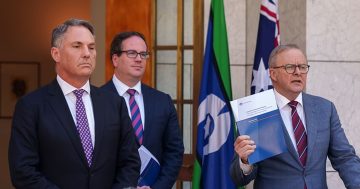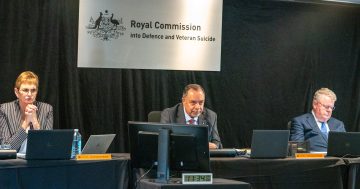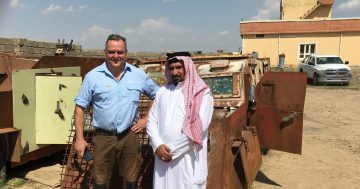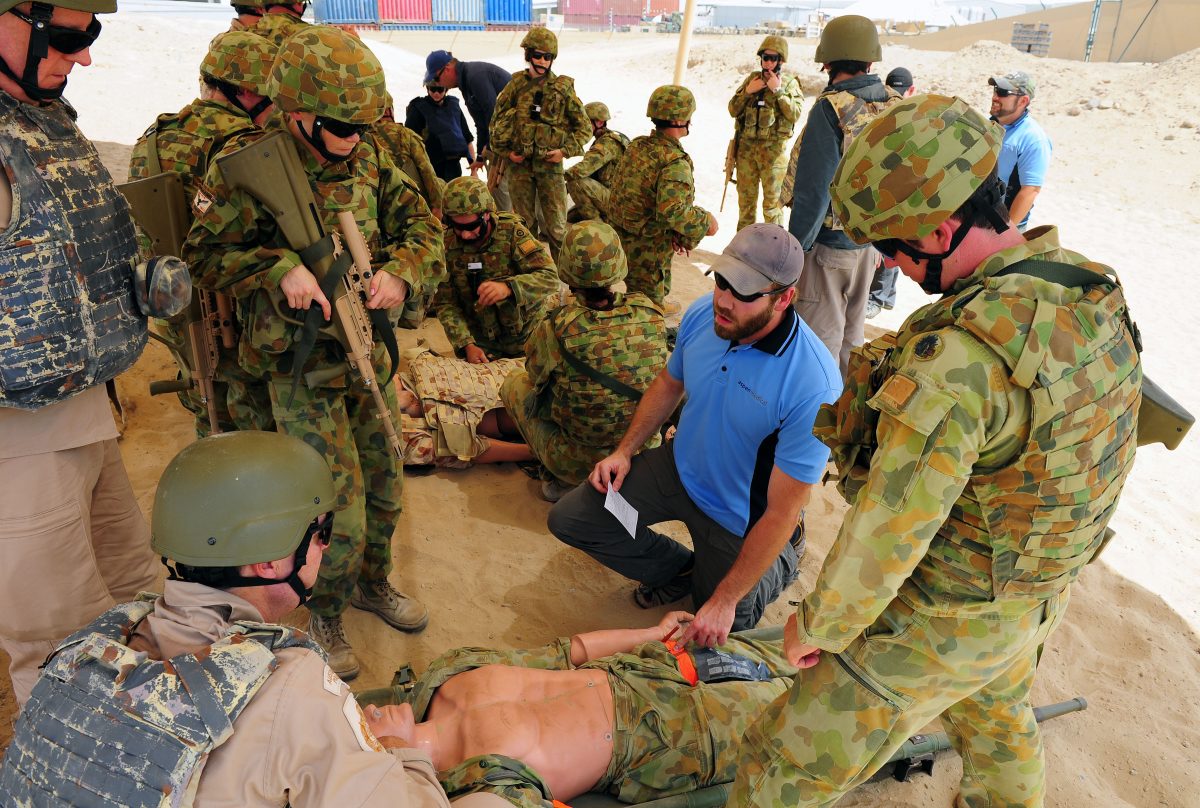
Aspen Medical’s chief medical officer argues a multiple military-civilian partnership model may be a better fit for the ADF. Photo: Aspen Medical.
Evidence heard in the Royal Commission into Defence and Veteran Suicide was eye-opening and heart-breaking, and pointed to weaknesses in the Australian Defence Force’s health system.
One of the key findings in last year’s interim report was that, upon separation, veterans often feel somewhat disconnected from their comrades and from the many familiar systems they have been exposed to and become a part of during their time in Defence.
One of these systems is the Defence health system.
In a paper entitled Optimising Military Civilian Health Partnerships: a Comprehensive Exploration of Delivery Models, Aspen Medical chief medical officer Dr Katrina Sanders says the Defence health system has quite different requirements from the civilian system most Australians are used to.
“Effectively providing peacetime medical care to military personnel poses a complex challenge, considering the diverse requirements of military healthcare systems,” she said.
“Health for Defence is a main gateway for deployment – it’s front of mind of every individual, every team, every unit. They have to engage with the health system to be able to perform their role.
“You and I, we only really engage with the health system when we’re unwell,” she added. “But Defence members have to engage with the health system more regularly.”
As a former Senior Medical Officer in the Australian Army, Dr Sanders highlighted another distinct difference between the military and civilian health systems: “The Defence peacetime health system is critical in supporting the medical readiness of individuals, which ultimately supports ADF mission readiness.
“Normally, it would be just you and your doctor, and that’s it. But in the Defence health system, Command is also deeply involved, so the governance around that completely changes,” she added.
“The relationship between the health system and command needs tight and practical governance, underpinned by a strong relationship.”
She stressed that, while commanders don’t share confidential medical information, they are a necessary “third driver” in deciding an individual’s health.
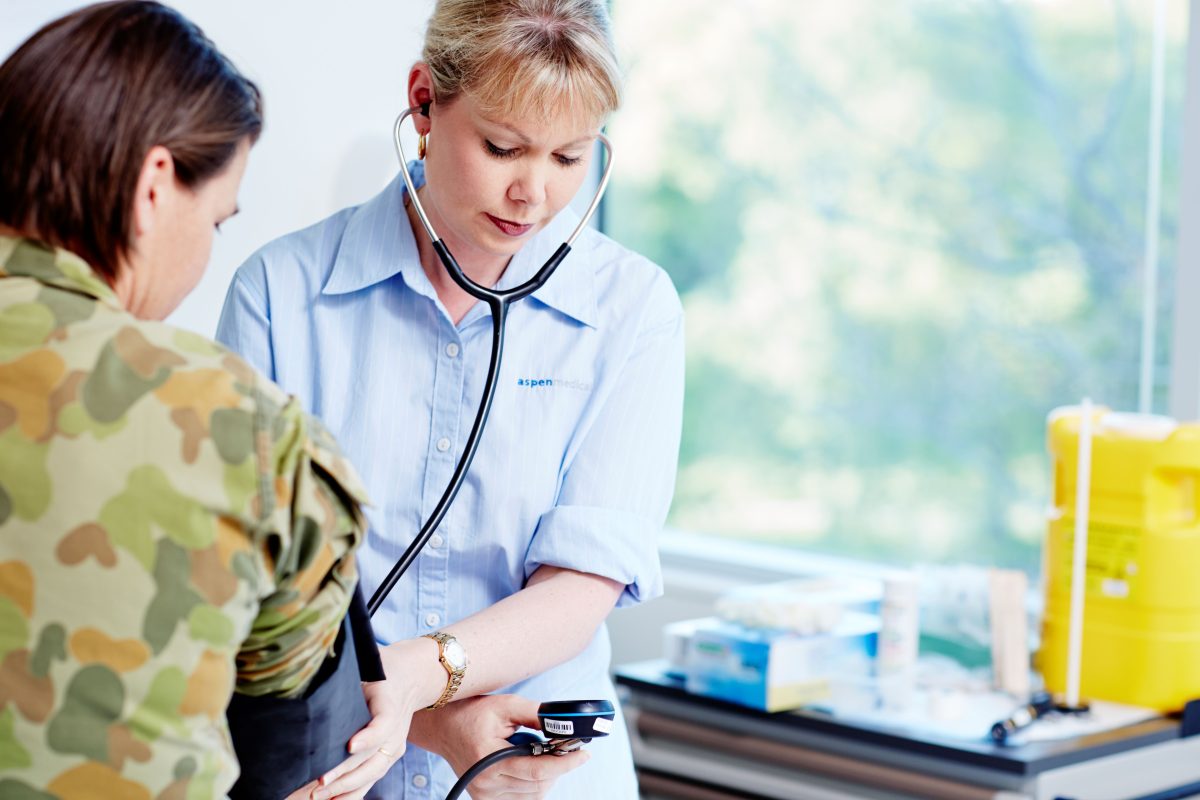
Aspen Medical is a preferred supplier to provide medical support to Australian Defence Force training units across Australia. Photo: Aspen Medical.
Dr Sanders says the Defence system requires a revolution, one that not only adopts the latest technologies, such as virtual care and an increased focus on mental health but also carefully manages a Defence member’s career from the day they join up to long after their service and their transition back to civilian life.
The current military health system is supported by a single Military-Civilian Partnership (MCP), and this model has been generally successful. However, the Aspen Medical chief medical officer argues a multiple MCP model may be a better fit for the ADF.
“The single MCP model involves a large civilian health organisation offering a range of services – from hospital contracting to on-base medical care, research, and network access,” she said.
However, she added that the single MCP model is restricted in the services and efficiencies it can offer compared to a multiple MHS model.
She said, “The multiple MCP model addresses many of the concerns of the other models by partnering with providers aligned with base locations and care needs.
“This fosters proximity, personalised services, and optimal accessibility, alleviating strain on MHS facilities and yielding significant cost savings.”
The multiple versus single MCP model certainly requires careful consideration when viewed through the lens of readiness and care continuum, and multiple MCPs may offer a viable alternative model that meets the needs of Defence members, Command and their families.
The former ADF Senior Medical Officer said Defence has a moral imperative to review the existing model for peacetime health service delivery, particularly considering the findings of the Royal Commission.
She also said there is an opportunity to engage with service members right at the start of their military careers and establish a continuum that will prepare them for the transition back to civilian life.
“We know the transition period is highly risky and needs to be managed very tightly,” she said.
“I envisage a seamless model, one where we’ll have checking points along their career in preparation for that point in time.
“It may seem counterintuitive to talk to young people when they join up about when they’re going to leave and what that transition will look like, but I think an understanding of the care continuum by Defence members and their families early in the engagement or recruitment phase has been proven to be highly protective from a health perspective,” she said.
“The peacetime Defence health system needs to mirror this continuum to prevent fragmented care and to support life-long healthcare without interruption.
“It would be a full education program through the life of their of their career,” she added.
“The important component about that is, rather than treating everyone the same, we should treat them differently with their own nuances, their own genetics, their own needs.”
Read Aspen Medical chief medical officer Dr Katrina Sanders’ full paper, Optimising Military Civilian Health Partnerships: a Comprehensive Exploration of Delivery Models.
















